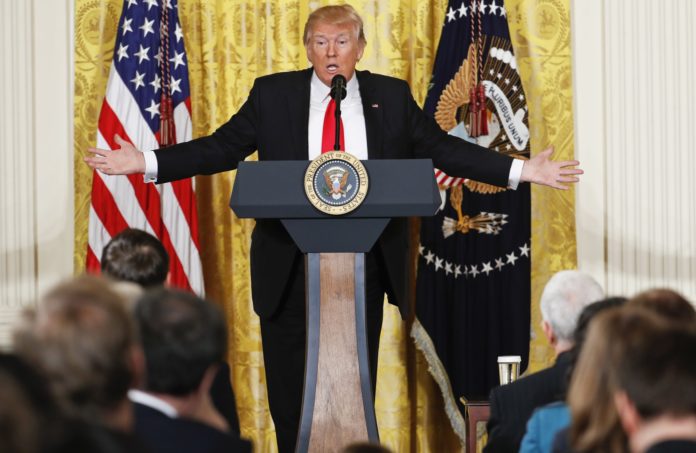
With heightened political sensitivity across the country, business decision-makers are accused of having political motives, and many companies are now stuck between a rock and a hard place when it comes to their relationship with the Trump brand name, professors say.
“It’s a tough situation because it’s a really polarized time in politics and society as a whole,” said Dr. Chris Pullig, professor of marketing and chair of the marketing department. “I think that’s what makes this really difficult for a lot of brands and individuals as well.”
Super Bowl commercials that came out two weeks ago created commotion as people rushed to Twitter to voice their opinions about commercials that were seen as anti-Trump. Bleacher Report included some of the Twitter reactions to commercials, and International Business Times cited the advertisement links as well as a few responses. Some controversial commercials included Airbnb and 84 Lumber. Other commercials such as Audi and Budweiser also served as conversation starters.
“I would say that some of them were probably a bit more overtly specific about the message that they contained,” Pullig said. “Most of them though probably were more statements about values, and that is not anything new.”
Pullig said that over the years, companies have taken a stand for diversity or inclusiveness, and it is a common strategy to represent their values. Pullig cited Audi’s commercial as a good example of something that a few years ago would not have created the same reactions it created this year. Although he said there were more politically-focused ads this year as a reaction to the political climate, they were not too far off from the type of message a brand might use to stay consistent with core values.
“It’s very common for brands to use ads that are demonstrating of their core values,” Pullig said. “They know that, when they express these core values, they align with a certain segment of society and the market. Branding is a segmentation issue, and certain segments of the market will appreciate and respond to an organization’s core set of values being expressed.”
Dr. Seul Lee, assistant professor in the department of journalism, public relations and new media, said a lot of responses depend on how the media frames the facts and the consumer reaction, especially if people focus just on political facts as opposed to the economic facts. This can be seen through major boycotting of the Trump brand, in particular the #GrabYourWallet movement, a campaign of people boycotting companies that do business with the Trump brand.
“From my opinion, the basic premise for economics is a human being makes a rational decision, but after that people got to realize that their decision does not 100 percent depend on their rational reasoning,” Lee said. “Sometimes people make some kind of emotional decision making. Other times, people make decisions based on their ethical beliefs. Nowadays, I think it has evolved from socially conscious people to politically conscious people.”
On Feb. 2, Nordstrom announced that it would no longer be carrying the Ivanka Trump brand products due to a decrease in sales. Ivanka Trump footwear and apparel sales at Nordstrom dropped from $20.9 million to $14.3 million, according to the Wall Street Journal.
President Trump tweeted on Feb. 8 saying, “My daughter Ivanka has been treated so unfairly by @Nordstrom. She is a great person – always pushing me to do the right thing! Terrible!”
Pullig said it’s impossible to know for sure, but he assumes there are people who are avoiding the Trump products in stores, which could possibly lead to lower sales. Pullig said there are consumers who are not only avoiding Trump brand products but are also voicing their opinions on stores carrying products.
Dr. Sara Stone, department chair for the department of journalism, public relations and new media, discussed business decisions such as the decision made by Nordstrom in her Media Law and Ethics class. Stone taught her students that, thinking from a business standpoint, no profit means no business. As a business owner, Stone said, one would want to make a profit and not want to alienate any particular group of people.
Pullig emphasized that taking a stand as a business is very risky, and freely expressing core values is different from taking political stands.
“I think it’s really dangerous to take political stands, and, in fact, I’d say most businesses will avoid doing that when they can. Taking a political stand is a very, very dangerous thing to do,” Pullig said. “Generally speaking, it’s bad business to engage in political statements.”





